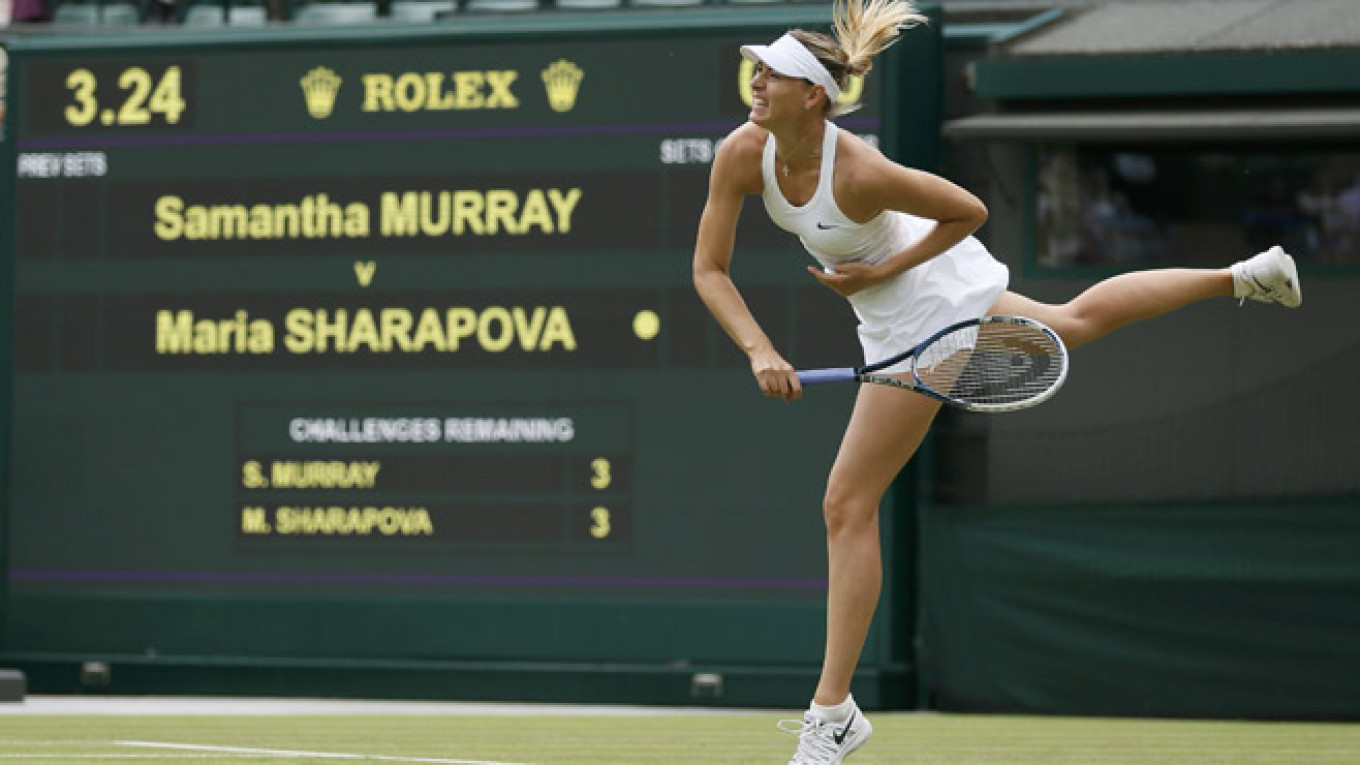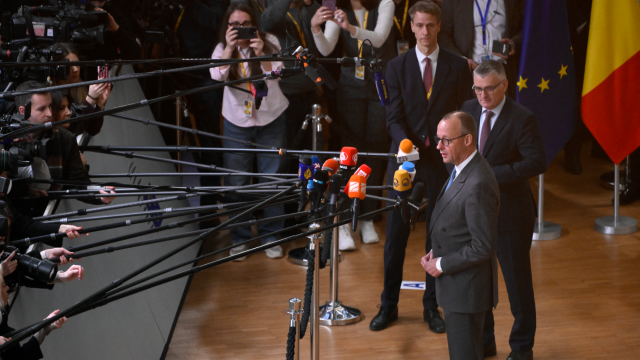The shock losses suffered by top two seeds Serena Williams and Li Na have left Maria Sharapova with a smooth passage and the Russian is primed to win her second Wimbledon title, 10 years after winning her first as a 17-year-old.
Sharapova has dropped just seven games in her three matches thus far and the imperious Russian will be confident of winning her sixth grand slam in the absence of her nemesis Williams.
The 27-year-old is on the wrong end of a 16-2 head-to-head record against the American with her only two triumphs coming in 2004, the first of which saw her crowned Wimbledon champion.
Williams crashed out 6-1, 3-6, 4-6 against France's Alize Cornet in the third round on Saturday, her earliest exit at Wimbledon since losing in the same round in 2005.
Her defeat came a day after Chinese two-time grand slam winner Li was dumped out 6-7(5), 6-7(5) by the Czech Republic's Barbora Zahlavova Strycova.
Their defeats have opened the door for a host of women, but the top of that list is Sharapova.
Players have long talked about the difficulty of adapting to the grass courts of Wimbledon so soon after a long clay court season and nobody has backed up winning the French Open with Wimbledon triumph since Williams in 2002.
Sharapova's form, however, suggests she can match that achievement and win her sixth grand slam in the process.
"Well, this is only my second time trying to do that. Of course, the transition, it is no secret, it is very difficult," she said after reeling off 11 consecutive games to beat Alison Riske 6-3, 6-0 in the third round on Saturday.
"But I am quite happy with the way I have gone about things so far.
"You never know what to expect. Each match poses its different challenges. I am happy that I have gone further than last year, erasing those memories and trying to form new ones.
"A Grand Slam stage, when you are playing for two weeks, seven matches within those two weeks, you are always kind of rolling with each round.
"Once you get to another [grand slam], one of the toughest things is you start from scratch, you start from the first match.
"Mentally that's always, you know, a bit more difficult because you achieve some great success, then you get on the train, come here, and right away the mentality switches that I've got to start from the first round.
"That's always a quick switch that you need to make mentally. That transition has always been quite tough for me," added Sharapova who plays German ninth seed Angelique Kerber in the round of 16.
Bouchard Challenge
Higher seeds remain but Sharapova's biggest challenge is likely to come in the shape of rising star Eugenie Bouchard, a semi-finalist in the last two grand slams at the Australian and French Open.
The aggressive 20-year-old Canadian faces Williams' conqueror Cornet in the next round with a potential quarter-final against Sharapova the prize.
"I would not consider myself deep into Wimbledon at this stage," Bouchard said after beating Germany's Andrea Petkovic on Saturday.
"I am into the second week, which is great. But, you know, I want to go so much further. At the same time I am focused on one match at a time.
"But, of course, Wimbledon is probably the most prestigious tournament in the world. It is a special place to be here and I would love to stay a really long time."
Romania's third seed Simona Halep, runner-up to the Sharapova at the French Open, and Polish fourth seed Agnieszka Radwanska are expected to make extended runs in the championship.
They face Kazakhstan's Zarina Diyas and Russian Ekaterina Makarova in the round of 16 respectively.
Elsewhere German 2011 champion Petra Kvitova plays China's Shuai Peng, Czech Lucie Safarova is against compatriot Tereza Smitkova, and Danish former world number one Caroline Wozniacki faces Zahlavova Strycova.
The other round-of-16 encounter will pit 2008 French Open winner Ana Ivanovic or 2013 Wimbledon runner-up Sabine Lisicki against the U.S.' Madison Keys or Kazakhstan's Yaroslava Shvedova after both of their third round matches were disrupted by bad light on Saturday.
See also:
A Message from The Moscow Times:
Dear readers,
We are facing unprecedented challenges. Russia's Prosecutor General's Office has designated The Moscow Times as an "undesirable" organization, criminalizing our work and putting our staff at risk of prosecution. This follows our earlier unjust labeling as a "foreign agent."
These actions are direct attempts to silence independent journalism in Russia. The authorities claim our work "discredits the decisions of the Russian leadership." We see things differently: we strive to provide accurate, unbiased reporting on Russia.
We, the journalists of The Moscow Times, refuse to be silenced. But to continue our work, we need your help.
Your support, no matter how small, makes a world of difference. If you can, please support us monthly starting from just $2. It's quick to set up, and every contribution makes a significant impact.
By supporting The Moscow Times, you're defending open, independent journalism in the face of repression. Thank you for standing with us.
Remind me later.






